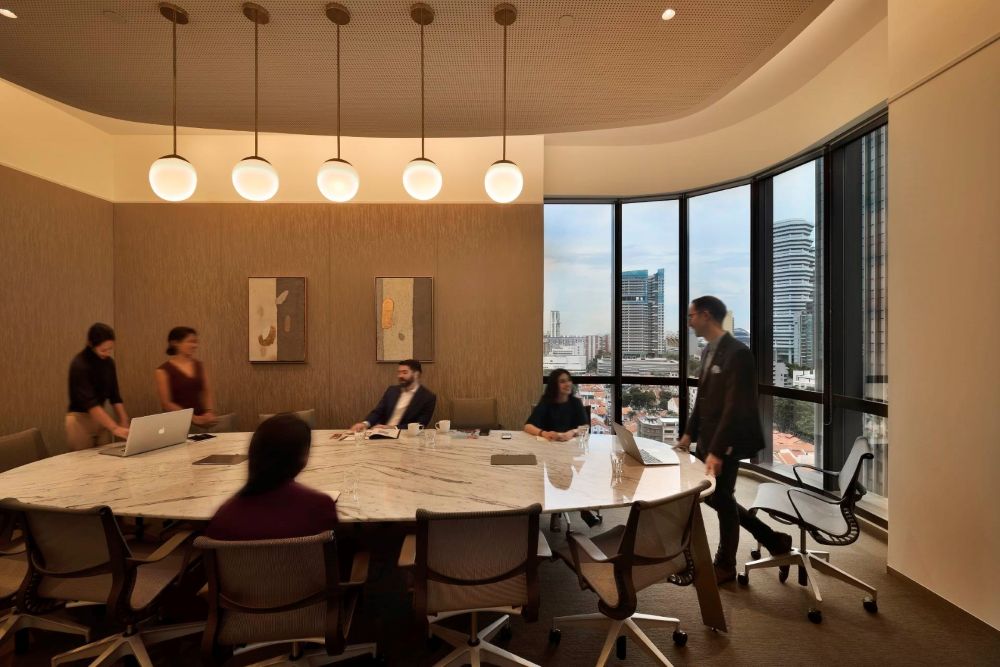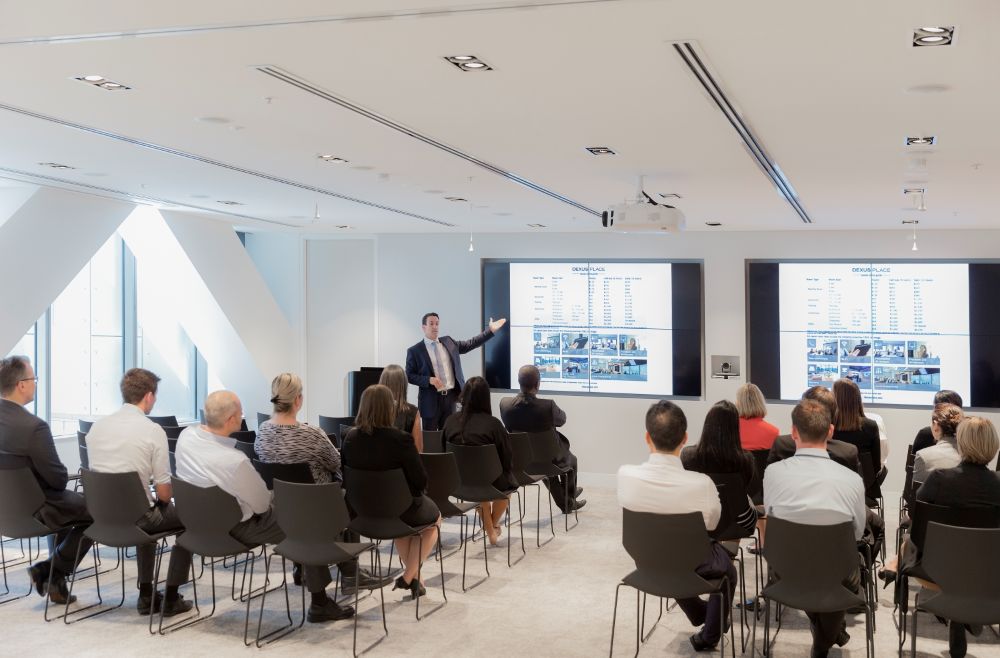Choosing the right workspace is a pivotal decision for any business, impacting everything from productivity to your bottom line. In today's evolving landscape, the options aren't limited to just traditional offices. Serviced offices have emerged as a compelling alternative, particularly in Australia's dynamic business environment. But which is the right fit for your company? This guide will break down the key differences, benefits, and considerations to help you make an informed choice.
What is a Serviced Office?
A serviced office is a fully equipped workspace that you can rent on flexible terms. It's more than just four walls; it comes bundled with a range of services typically found in conventional offices, such as:
- Reception services: A professional front-of-house team to greet your clients and manage your calls.
- IT support: High-speed internet and technical assistance to keep your business running smoothly.
- Cleaning and maintenance: A well-maintained environment so you can focus on your core operations.
- Meeting rooms: Access to professional spaces for client meetings and team collaborations.
- Shared amenities: Often includes kitchens, breakout areas, and sometimes even fitness facilities within the coworking space.
What are the Differences between Serviced Offices and Conventional Offices?
Contracts and Lease Terms: Flexibility vs Commitment
One of the most significant differences between serviced and traditional offices lies in their contract terms. Serviced offices offer unparalleled flexibility with agreements often starting from as short as one month and no lock-in periods. This allows businesses to scale their workspace up or down as needed, adapting to changing circumstances without being tied to lengthy leases.
Conventional offices, on the other hand, typically involve longer lease terms, usually starting from three years. While this offers stability, it can be a significant commitment, especially for businesses in their early stages or those anticipating growth.
Handover Condition: Move-In Ready vs Blank Canvas
Serviced offices are handed over fully furnished and ready for immediate use. This means you can move in and start working right away, eliminating the time-consuming and costly process of fitting out a traditional office space.
Traditional offices are usually handed over in a bare-shell condition, requiring you to invest in everything from flooring and lighting to furniture and internet connectivity. This can add considerable time and expense to your setup process.
Setup and Services: Plug-and-Play vs DIY
With a serviced office, you get the convenience of a plug-and-play environment. Everything you need — from high-speed internet connections and ergonomic furniture to regular cleaning services — is included. This turnkey solution allows you to hit the ground running and focus your energy on what matters most: growing your business.
Conventional offices, in contrast, demand a more hands-on approach. You'll be responsible for sourcing and setting up all necessary services, from office equipment and IT infrastructure to janitorial support. This can be a time-consuming and complex process, especially for smaller teams with limited resources.
Cost Efficiency and Facilities: Shared vs Self-Built
Serviced offices offer exceptional cost efficiency. By sharing facilities like meeting rooms, reception areas, and kitchens, you can access high-quality amenities without the associated costs of building them yourself. This shared model also fosters a sense of community and networking opportunities within the business centre.
In contrast, traditional offices necessitate building your own facilities, which can be a significant financial burden. You'll need to invest in everything from office furniture to coffee machines, which can quickly add up.
Flexibility vs. Fixed Terms: Adaptability vs Stability
The flexible terms of serviced offices make them ideal for small businesses, startups, and companies with fluctuating needs. You can easily adapt your workspace as your business evolves, whether that means adding more desks or reducing your footprint during slower periods.
Conventional offices, with their fixed terms, offer stability. This can be beneficial for medium to large companies that have more predictable space requirements and value a long-term base of operations.
Ideal Business Types: Small vs Large Footprint
Serviced offices are perfectly suited to small-footprint companies seeking flexibility, immediate setup, a professional image, and access to essential services without the hassle of managing them. They provide a supportive environment for businesses to thrive.
Traditional offices are typically favoured by medium to large companies that require more space and long-term stability. They offer the opportunity for customised setups and the establishment of a permanent company address.
Community and Networking: Collaboration vs. Isolation
Serviced offices, often situated within bustling business hubs, naturally foster a sense of community and collaboration. You'll be surrounded by like-minded professionals from diverse industries, creating opportunities for networking, partnerships, and knowledge exchange. The shared spaces encourage interaction, fostering a dynamic and supportive work environment.
Conventional offices, particularly those occupied by a single company, can sometimes feel isolated. While this might suit some work styles, it can limit opportunities for spontaneous collaboration and the exchange of ideas that often occur in more communal settings.

Contemporary office lounge area at TWP with comfortable beige sofas and indoor plants
Making the Right Choice for Your Business
Choosing between a serviced office and a conventional office depends entirely on your specific business needs. If you value flexibility, cost efficiency, and immediate setup, a serviced office like those offered by The Work Project in Australia could be the perfect solution. We provide modern, fully equipped shared office spaces in prime locations (such as our serviced offices in Sydney CBD) designed to help your business flourish.
Ready to explore the benefits of a serviced office? Contact The Work Project today to discuss how we can tailor a workspace solution to meet your specific needs.






